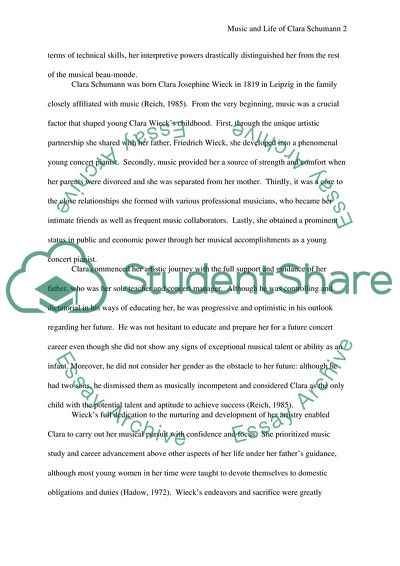Cite this document
(Music and Life of Clara Schumann Research Paper, n.d.)
Music and Life of Clara Schumann Research Paper. https://studentshare.org/biographies/1745405-music-and-life-of-clara-schumann
Music and Life of Clara Schumann Research Paper. https://studentshare.org/biographies/1745405-music-and-life-of-clara-schumann
(Music and Life of Clara Schumann Research Paper)
Music and Life of Clara Schumann Research Paper. https://studentshare.org/biographies/1745405-music-and-life-of-clara-schumann.
Music and Life of Clara Schumann Research Paper. https://studentshare.org/biographies/1745405-music-and-life-of-clara-schumann.
“Music and Life of Clara Schumann Research Paper”. https://studentshare.org/biographies/1745405-music-and-life-of-clara-schumann.


